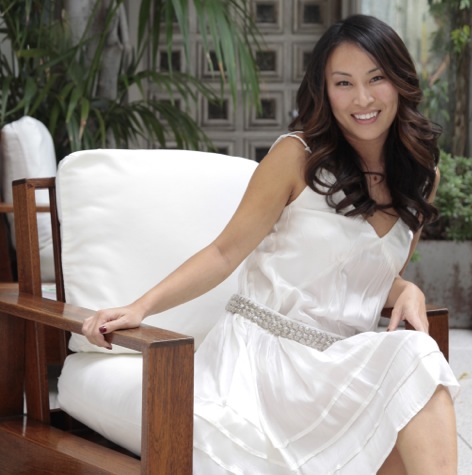
For Your Skin with Dr. Annie Chiu
Has your skin changed during or after your illness in ways that you are unsure how to handle? We did, too, so we spoke with Board Certified Cosmetic and General Dermatologist Dr. Annie Chiu about how to take care of our skin, during crisis and beyond. You might find the answers you have been looking for as well as some helpful product suggestions!
MNU: How much of a role does hydration play in regulating skin tone?
Hydration is very important in keeping the barrier of the skin intact and the deeper layers of the skin healthy. Having a healthy skin barrier decreases inflammation which improves skin texture, tone, and evenness of pigmentation as well. Skin hydration is mostly achieved from the “outside”, meaning with a moisturizer. It is unclear how much science there is behind “drinking 8 glasses of water a day.” However, having a healthy balanced diet with plenty of hydration certainly leads to healthier cells that is reflected in radiant skin.
MNU: What about sunscreen?
The American Academy of Dermatology recommends daily sunscreen use of SPF 30 or above with reapplication every 3-4 hours. People do not realize that even the short walk from your office to the parking lot is enough to set off enzymes that can not only damage DNA but also degrade collagen. These factors contribute to increased risk of skin cancer and premature photo-aging.
MNU: What is the highest grade sunscreen that really works? Do we need 100 SPF?
Studies show that SPF 30 is probably adequate for most people. At SPF 50 or above, there is minimal increase in the percentage of protection. In fact, recent labeling is being changed by the FDA to not grade sunscreens above SPF 50, because sunscreens that say SPF 100 misleads people into thinking it is twice as protective as SPF 50.
MNU: How often should we see a dermatologist?
I recommend once a year total body skin examinations for skin cancer screening. If you have risk factors such as recent chemotherapy or other immunosuppressive agents, twice a year screening is most ideal. I also have a fair number of patients who visit me quarterly just to make sure their overall skin appearance and skincare regimen is optimized, as looking good is so important in how we perceive ourselves.
MNU: What do we do about moles, skin tags and other growths? Why is this happening?
It is not uncommon to develop new moles into our 30s. Many other benign skin growths such as skin tags, cherry angiomas, and seborrheic keratosis also develop after the age of 30. The skin is our most adaptable organ, in that it is constantly turning over. Benign growths can occur as a result of an overproduction of a particular type of cell. Routine checks with a dermatologist can educate you on what is benign vs worrisome. Most benign growths can be removed easily by your dermatologist, but keep in mind these growths are considered not “medically necessary” by insurance companies. I tell my patients no one will know their skin better than themselves—take the time to look in the mirror once a month front and back without your clothes on. Look for anything new or “different”—what I refer to as the “ugly duckling” way of self screening.
MNU: What can we do to fight the effects of aging?
Sunscreen, sunscreen, sunscreen! Smoking and excessive sun exposure also greatly increase the effects of environmental aging. Chat with your dermatologist about a good sunscreen with a texture and feel that you like. Then start adding anti-aging ingredients into your skincare routine like Vitamin C or retinols.
MNU: How do we fix sun damage?
In office procedures with a dermatologist that have minimal to no downtime including chemical peels and intense pulse light treatments can reverse sun damage that has already occurred with minimal downtime. The use of a prescription strength topical retinoid if you are not pregnant or nursing has also been shown in numerous studies to thicken collagen fibers and reverse abnormal photo-damaged cells.
MNU: How do we prevent skin cancer?
The only way to reduce your likelihood of skin cancer is to decrease your exposure to free-radical damage. The most obvious being sun exposure. Use sunscreen daily, rain or shine (as the UV index is not proportional with how sunny it may look outside), reapply (I like easy reapply products such as Colorescience’s Sunforgettable Powder sunscreen in a brush) throughout the day, and avoid heavy outdoor activity between 11am-3pm. Seek shade when possible, and avoid tanning beds.
MNU: What causes acne and why do we get it as adults?
Adult acne is multifactorial. Often as estrogen levels drop with age, it appears to our bodies that testosterone levels are actually rising—this can lead to hormonal breakouts. Further, with time, the turnover of our skin cells slows with age, and in some individuals this can lead to more clogging of pores and acne breakouts.
MNU: How much does lifestyle play a role in the quality of our skin? How do diet and exercise affect us?
Studies show stress exacerbates numerous skin conditions, including acne and eczema. A balanced diet and healthy lifestyle decreases inflammation in the body, which decreases the likelihood of rashes, acne, and oxidative damage that leads to premature aging. For particular individuals, it does appear that dairy products or a high glycemic diet is more likely to trigger breakouts. I tell my patients that the skin is the largest organ on the body—it is going to reflect what you put into it.
MNU: If we have scars from surgeries, how do we care for them and will they fade?
Scar treatment depends on the age of the scar. Immediately after surgery, there are a few products that have shown effectiveness in scientific studies to diminish the formation of the final scar. I like SkinMedica’s Scar Recovery Gel and Kelocote Scar Gel. It takes a scar 8-9 months to fully modify, so be assured that some of the redness will diminish over time. Sometimes thickened scars can form, such as keloids. Your dermatologist can help with easy in-office procedures to soften and flatten these types of scars. If a scar is a few months old, technologies such as fractional laser resurfacing can definitely improve their appearance.
MNU: What are the best things we can do to care for our skin going forward?
1. Use sunscreen.
2. Consider adding a retinoid to your skincare regimen.
3. Moisturize your skin.
4. Do monthly self exams on your skin.
5. Book an appointment with your dermatologist at least once a year.
6. Consider minimal downtime procedures that can improve your appearance and boost confidence!
Dr. Annie Chiu, Board-Certified Cosmetic and General Dermatologist, is the founder of her own Boutique Style Dermatology practice, The Derm Institute, where we believe that healthy, beautiful skin should be attainable for every patient. Serving the greater Los Angeles area, Manhattan Beach, Hermosa Beach, Redondo Beach and Palos Verdes, our uniquely friendly and compassionate team is committed to delivering superior service and results in an intimate, comfortable, and relaxing setting. We are dedicated to making our patients feel special, glowing, and happy with their skin every day. At our practice, Dr. Chiu personally consults with every patient, providing physician quality care.
See Dr. Chiu’s appearances on “The Doctors” and other media here>
Contact: The Derm Institute
1636 Aviation Boulevard, Suite 201
North Redondo Beach, CA 90278
(310) 939-9800
info@thederminstitute.com




